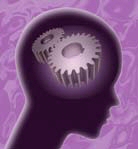More About NLP & Agility
|
|
|
|
The winning team
|
|
At my
first show Some relative newcomers to the sport were able to clear the bar at a much higher level than would have been expected. As I continued to watch and listen, it became apparent to me that the difference between competitors and winners, barring the odd unscheduled toilet stop by the dogs, was the innate presumption of the handler that their dog would do exactly what was expected of it in the quickest possible time, a notion that the dogs seemed to take on board. On at least half a dozen occasions during competitions, I have heard various handlers say that their dog won't do the wait or the last weave etc. for them in the ring whilst in training or when such and such runs them. They perform perfectly. So, contrary to my expectation, the key seems to be the confidence of the handler rather than the dog. |
Team up with NLP If you want to be the winning handler you know you really are, try a free 15-minute session with Andrea and see what a difference it makes at the following shows:
For more information, ring tel. 01792 528457 or mobile: 07790 348521 |
 What
is NLP?
What
is NLP?
NLP is a set of techniques developed by academics John Grinder and Richard Bandler
in the 1970s. Basically it is a system which harnesses the power of the mind and unleashes the
potential for excellence within an Individual's chosen field. Their collaboration began as a
result of a mutual curiosity in discovering what it was that enabled very successful people,
particularly in the field of sports, to produce consistently fantastic performances.
The result of their research was a process which they called 'Modelling.' Their belief, proven by the research, was that by modelling the thought processes and behaviour of a person who does exceptionally well, another person could achieve a greatly enhanced and sustainable level of success.
One of the pre-suppositions of NLP is that we all already possess the resources we need to ensure success. What we need to do to better our performance is to change our old thought patterns that have led us to behave in a particular way'These patterns have been useful to us in the past, but will not necessarily continue to assist us'In fact, if we have had a negative experience, we unconsciously expect that this will be the result next time we do the same thing'
How often have you been on the start line and presumed your dog wouldn't do the wait properly? Or approached a run with a sinking heart and a voice that gets higher and higher as you give the commands (and not just because you are out of breath!)
If you’ve ever said or been told 'It's not the dog, it's you” and not known what you can do about you, Neuro Linguistic Programming could be the answer.
I have been using NLP approaches with agility competitors:
Anchoring to ensure that they keep their focus
Linguistic techniques to enhance self belief
Imagery to calm those jitters.
In all cases, handlers have reported greater success in the ring and, most importantly, calmer, happier dogs. One said,
'I went to a show at the weekend and thought it was a different dog. Then I realised that it was a different handler, me!! Cheers'
Cheryl, Swansea
About the author...
Andrea
Brown
is an NLP Coach-Practitioner
and reiki healer,
based on the Gower
near
Swansea. She is fascinated by how people tick and how they can achieve their goals.
She has been involved with dogs all her life, from her childhood in Belfast watching her family hunt wild fowl to her present interest in agility. She is sadly without a dog at present but now keeps eyeing collies at shows.
|
[bottom.htm] © Copyright Agilitynet |